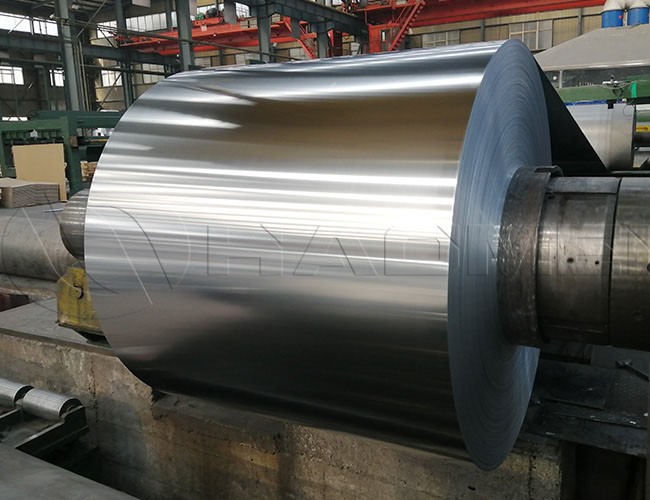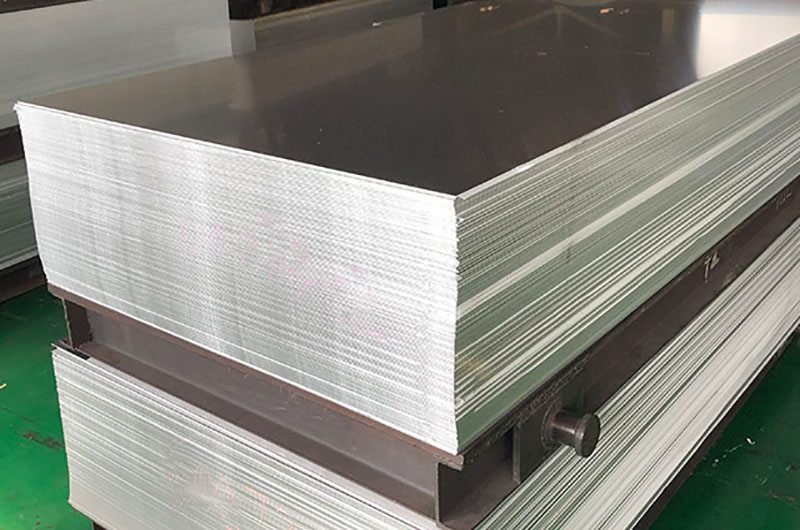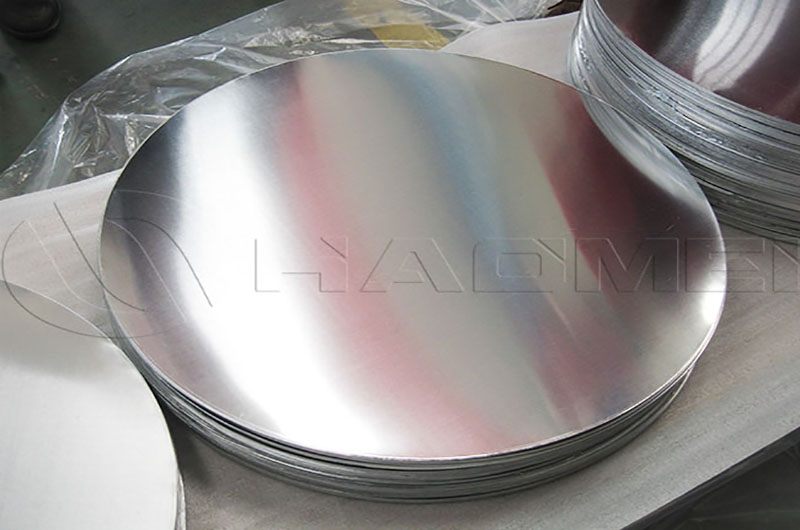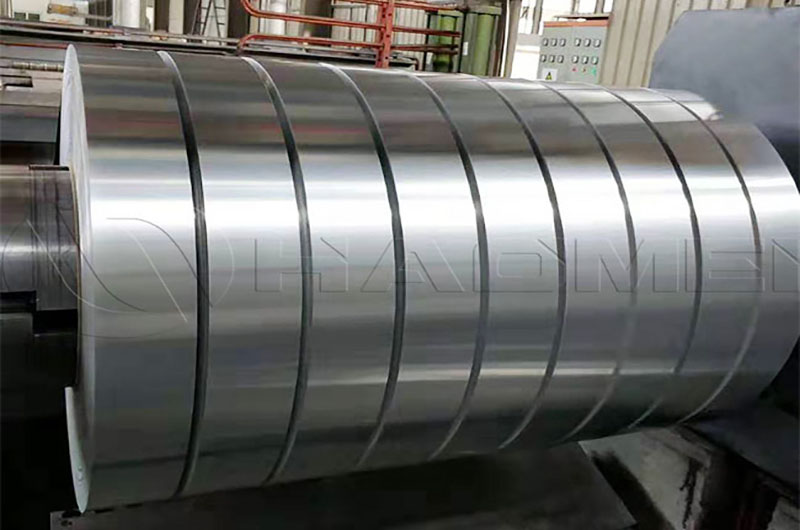The model and status of the aluminum coil indicate the different characteristics of the aluminum coil. Here, 1050 and 1100 are the alloy numbers of the aluminum coil respectively, and H14 represents the hardness state of the aluminum coil.
1050 H14 aluminum coil
Alloy number: 1050 is a pure aluminum alloy consisting mainly of aluminum.
Hardness state: H14 means semi-hard, semi-hard state after cold rolling. This means that during processing, the aluminum coil undergoes a certain amount of cold rolling to obtain moderate hardness.
1100 H14 aluminum coil
- Alloy number: 1100 is also a pure aluminum alloy, mainly composed of aluminum.
- Hardness status: It is also H14 status, indicating semi-hard status.
Generally speaking, these two aluminum coils are very similar in alloy composition and hardness state. They are both pure aluminum alloys and both are in a semi-hard state. They are often used in applications where hardness is not particularly high, such as general molding and machining processes. When making a specific selection, factors such as the requirements of the specific application and cost may need to be taken into consideration.
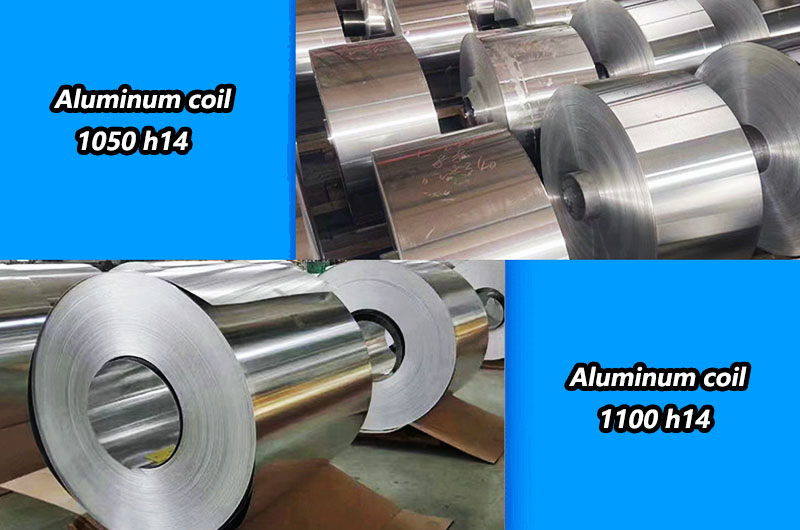
1050 H14 and 1100 H14 aluminum coils are both regular members of the 1000 series of aluminum products. The main difference between them is the composition, which leads to further differences in mechanical and chemical properties.
Alloy composition
- 1050 aluminum coil: Aluminum coil with alloy number 1050 is a pure aluminum alloy with an aluminum content of more than 99.5%. It has almost no other alloying elements added and is mainly pure aluminum.
- 1100 aluminum coil: Aluminum coil with alloy number 1100 is also a pure aluminum alloy, also has high purity and contains more than 99% aluminum. Similar to 1050, 1100 is also made of pure aluminum.
1100 aluminum coil contains less aluminum than 1050 aluminum coil, but has more copper and magnesium, so it is harder. The fact that both rolls are in H14 condition does not affect the outcome of this hardness comparison, as 1100 is naturally stronger. Compared with the full soft state of H18, H14 represents a semi-soft state.
Hardness state
H14 state: For these two aluminum coils, their hardness state is H14, which means a semi-hard state after cold rolling. In this state, the aluminum coil has a certain hardness, but still has good formability and is suitable for some cold working and forming operations.
Mechanical behavior
Since they are both pure aluminum alloys, their mechanical properties are similar. Pure aluminum generally has lower strength but good electrical and thermal conductivity.
Tensile Strength
- 1050 H14: about 70 MPa
- 1100 H14: about 75 MPa
Yield Strength
- 1050 H14: about 35 MPa
- 1100 H14: about 35 MPa
Elongation
- 1050 H14: about 25%
- 1100 H14: about 22%
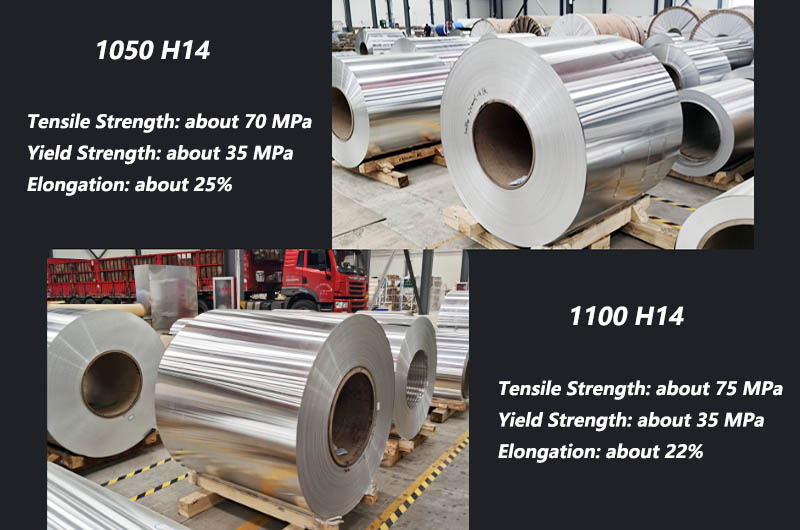
Judging from these general values, there are some differences in mechanical properties between the two, but the difference is not very significant. Both 1050 H14 and 1100 H14 are pure aluminum alloys and are usually used in applications that do not require high strength, such as chemical containers, food processing equipment, building materials, etc.
Application areas
1050 and 1100 aluminum coils are commonly used in some similar applications such as food packaging, building materials, capacitor casings, pressure vessels, etc. They provide good formability and corrosion resistance in these areas.
1050 H14 coiled materials are usually used in areas requiring low strength and corrosion resistance, including daily necessities, lighting fixtures, reflectors, decorations, chemical containers, heat sinks, signs, electronics, lamps, nameplates, appliances, stamping parts, etc.
1100 H14 coiled material is more corrosion-resistant and has a wide range of applications, from cookware to industrial equipment, such as vessels, radiators, bottle caps, printing plates, building materials, deep-drawn heat exchange elements, etc.
Select factors to consider
When choosing between 1050 H14 and 1100 H14 aluminum coils, you may need to consider specific application requirements, cost, processability and other factors. Since they are similar in alloy composition and hardness state, the choice may depend on the production process and specific technical requirements.
Overall, 1050 H14 and 1100 H14 aluminum coils are similar in alloy composition and hardness state, but the specific choice needs to be weighed based on the needs of the actual application.
Informations you may be interested in:
- 0.5mm thick 3003 anti-corrosion thermal insulation aluminum coil
- Aluminum Coil for Power Plant Insulation
- Stucco embossed aluminum coil for pipe insulation
- What precautions should be taken when applying thermal insulation aluminum coils?
- Characteristics and storage precautions of aluminum coils for thermal insulation
- What are the benefits of aluminum insulation?
- Is aluminum a good thermal insulator?

